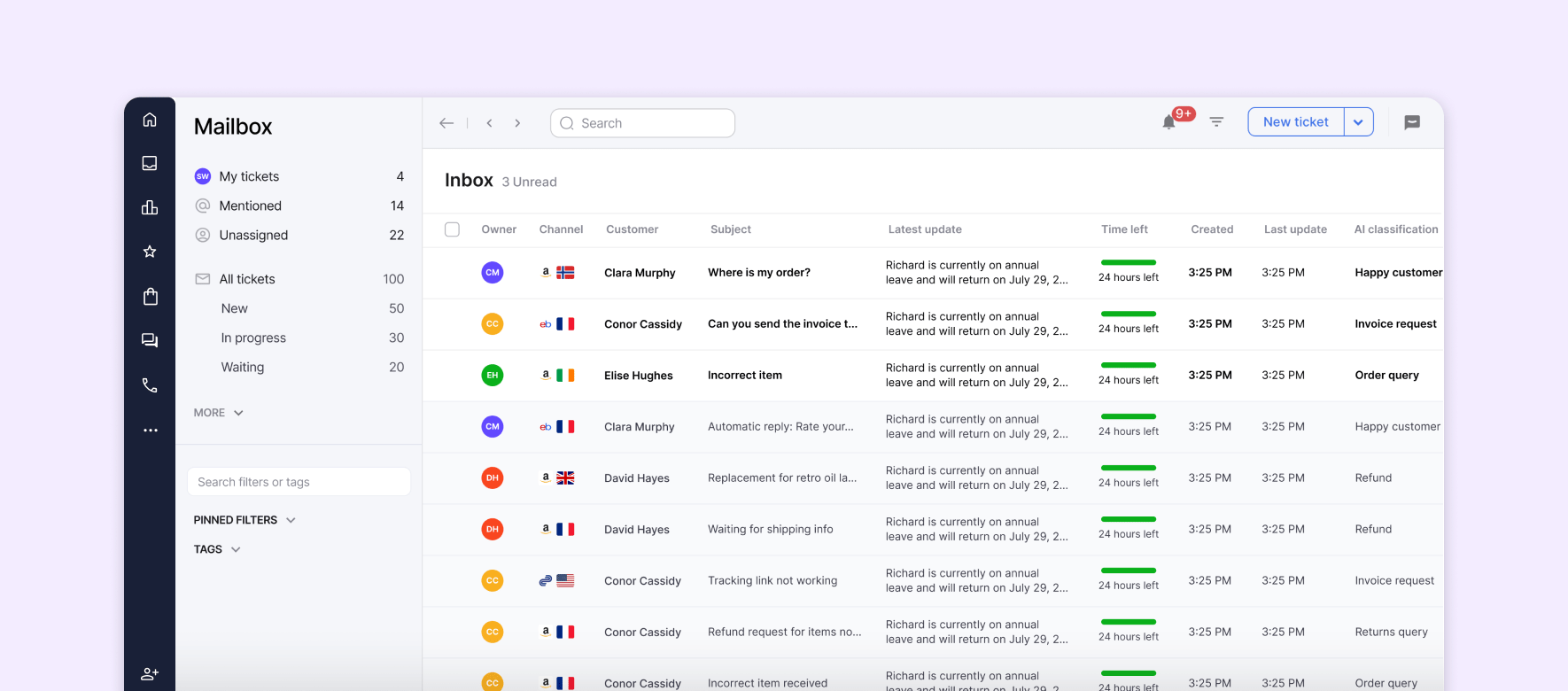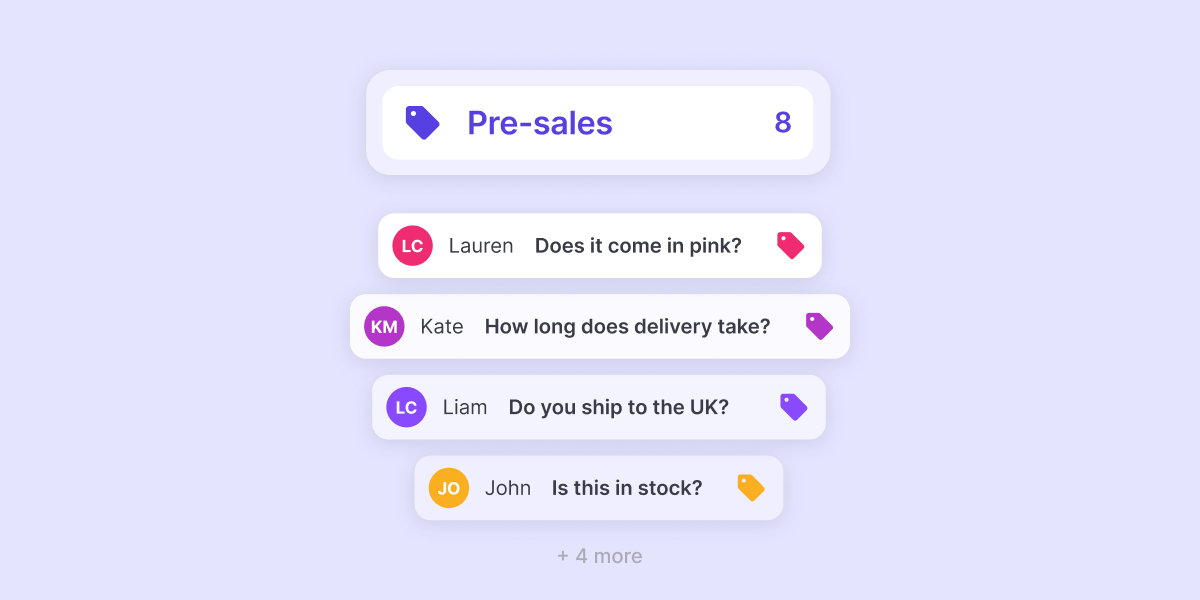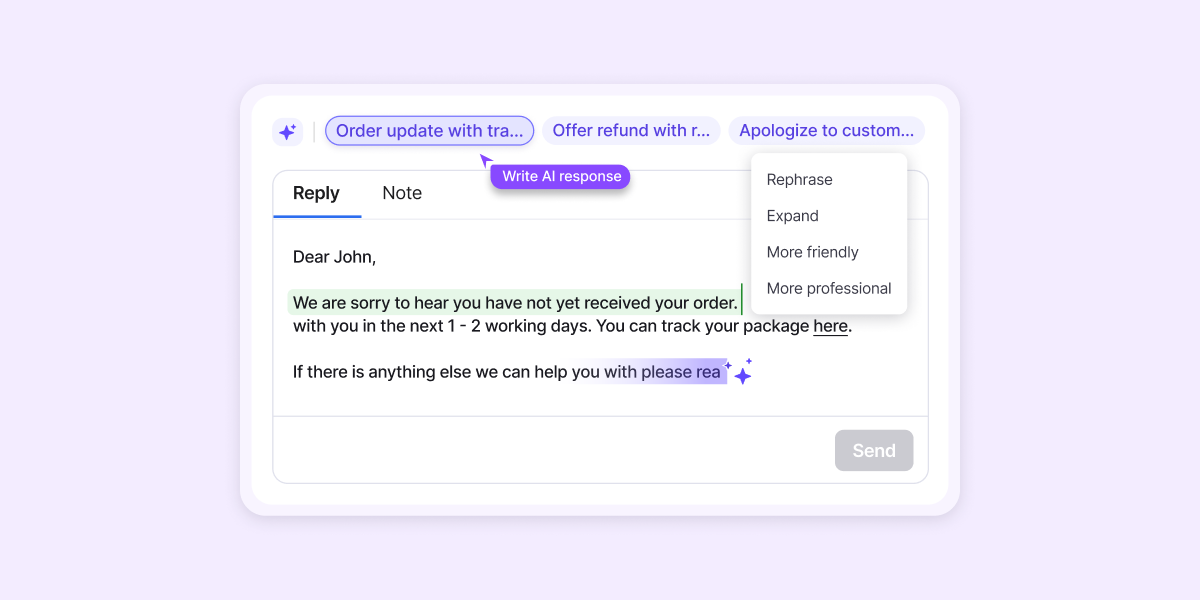Maximizing sales with AI-driven customer support
Written by
Editorial TeamPublished on
AI-driven customer support is revolutionizing e-commerce by enabling faster, personalized responses to customer inquiries, especially during critical presales moments. By leveraging tools like automated ticketing, contextual responses, and proprietary data models, businesses can enhance customer experience, drive sales, and maintain trust with secure and tailored interactions. (Ad)

Commercial collaboration
eCommerce customer expectations are higher than ever – and why shouldn’t they be? After all, we have more technology, information and insights at our fingertips than ever before. Which is why efficient, responsive, and – crucially – personalised customer support can be the key to fostering loyalty and boosting sales.
Artificial Intelligence (AI) is playing an increasingly important role here, with tools such as automated ticketing, response prioritisation, and contextual support, which between them go a long way to enhancing customer experience and driving conversions. But how can eCommerce sellers best use AI-driven customer support to achieve their sales goals? That’s exactly what we’re going to look at here, with a particular focus on presales opportunities, contextual relevance, and proprietary data utilisation. Let’s get started.
AI-driven presales identification and speed of response

AI technology can help eCommerce sellers identify presales opportunities – which, for the uninitiated, are interactions with potential buyers who might be close to making a purchase. Recognising these moments is critical, as customers with questions before buying are likely to convert into paying customers if they receive quick and accurate responses.
But here’s the point of difference – presales have always been there, they’re nothing new. The issue with presales queries is that they can easily get lost in the noise and neglected. This is because they often occur outside office hours, when immediate human support isn’t available. Which can mean they’re not picked up quickly enough/immediately, and then get shuffled into a (sometimes very long) queue. And, as every eCommerce seller knows, time is of the essence when it comes to responding to queries – presale or otherwise.
The beauty of using AI for presales identification is that it can identify the nature of various different types of presales that come through, and cyphen them off to the appropriate agent (be that human or virtual) to deal with them ASAP. This could mean the person who is best qualified to deal with the query in question, or – crucially – it could mean the correct person (where appropriate) to convert a pre-sales conversation into a fully-fledged sales discussion. This capability is nothing short of completely invaluable for eCommerce sellers.
AI-powered tools such as chatbots and automated response systems are great at analysing customer queries in real time, and flagging those that indicate high purchase intent. For example, questions like “Does this product come in other sizes?” or “What is your return policy?” can be classified as presales enquiries. By automatically prioritising these interactions, AI makes sure they’re addressed promptly, which reduces response times and, in turn, minimises the risk of customer drop-off.
As we’ve said – and as you are no doubt acutely aware – speed is a critical factor here. Studies show that 79% of customers are more likely to make a purchase when they receive fast responses to their enquiries. By using tools like automated ticketing and routing into customer support workflows, businesses can significantly enhance response times, meet customer expectations and drive sales.
Contextual relevance in AI automation

AI’s true power lies in its ability to deliver personalised, contextually relevant support. Unlike traditional automation, which often relies on generic responses, AI tools like eDesk’s customer support software leverage customer-specific data — such as order history, past interactions, and browsing behaviour — to put together responses that feel much more tailored, relevant and accurate.
For instance, if a customer asks about the status of their order, an AI-powered system can instantly pull up the relevant details from their account — including the shipping status, tracking number, and estimated delivery date. This saves time for support agents but also makes the customer’s experience considerably better, by providing them with precise and relevant information, at the touch of a button.
Contextual AI is a huge step forward here. If a customer asks, “Does this item qualify for free shipping?” they can get an instant, accurate answer based on their location, order total, and the store’s shipping policy. This level of personalisation not only builds confidence in your brand, it also increases the likelihood of repeat purchases.
Proprietary data and models for enhanced accuracy
But how do you make sure the AI customer service data is secure, accurate, and relevant? Because if it fails on any one of those fronts, it hasn’t done you any favors at all — in fact it can do more harm than good.
Which is where proprietary data models offer a distinct advantage — by consolidating all customer data in a single, secure ecosystem, you eliminate the risks traditionally associated with fragmented data sources, can provide a better service, and be sure your clients’ data is secure.
Proprietary models also enable AI to “learn” from past interactions, which means it’s continually improving its ability to deliver relevant and helpful responses. This significantly reduces the workload on support teams, so they can focus on more complex or high-value tasks, where human interaction is absolutely vital.
As a bonus, by keeping all customer data on a secure, centralized platform, sellers can be sure they meet privacy standards like GDPR — which is great for building customer trust and protecting brand reputation.
Additional benefits of AI-driven customer support
- Scalability: AI allows businesses to handle high volumes of customer enquiries without ever sacrificing quality, which is especially handy for peak shopping seasons like Black Friday or holiday sales.
- Cost efficiency: By automating routine queries, businesses can reduce the need for large support teams, cutting operational costs.
- 24/7 availability: AI-powered chatbots and automation mean customers receive timely assistance, no matter what time of day or night it is, which increases the likelihood of conversions.
- Data-driven insights: AI tools generate valuable insights into customer behaviour and preferences, so businesses can constantly refine their support strategies and product offerings to suit their customers’ wants and needs — and ultimately offer a better service.
How to get started with AI-driven customer support
To take full advantage of the benefits of AI, eCommerce sellers need to take a strategic approach:
- Assess your needs: Identify the areas of customer support where automation and AI can have the greatest impact, such as presales enquiries or order tracking.
- Choose the right tools: Opt for platforms that offer integrated AI-driven solutions tailored to eCommerce.
- Train your team: While AI can handle many tasks, human agents remain essential for handling complex or emotionally sensitive issues. So make sure your team is trained to collaborate effectively with AI tools.
- Monitor and optimise: Use data insights from AI tools to continuously refine your support processes and address any performance gaps you might have.
Conclusion
AI-driven customer support is no longer a pie-in-the-sky futuristic concept, it’s here. And it’s a practical solution for eCommerce sellers looking to maximise sales and improve customer experiences.
By harnessing tools like automated ticketing, contextual automation, and proprietary data models, you can reduce response times, enhance personalisation, and build stronger relationships with your customers.
To stay competitive, embracing AI is not really an option anymore, it’s a necessity. Find out more about how eDesk can help you implement AI-driven solutions tailored to your specific business needs.
***


